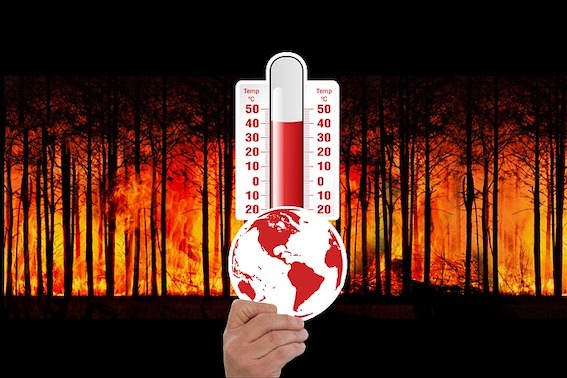Onkaparinga claims climate leadership
Staff Reporters
23 November 2025, 7:40 PM

City of Onkaparinga Mayor Moira Were says her recent trip to Brazil for two major global climate summits has delivered strong value for the community, even as Australia’s bid to host COP31 transitions to a new arrangement.
Türkiye will now host COP31, with a Pacific Island nation to lead the pre-COP summit, and Minister Chris Bowen to take on the role of COP President of Negotiations.
Mayor Were says that while she is disappointed South Australia will not experience the immediate economic and reputational benefits of hosting, the work of tackling climate change “does not pause—and neither can we.”
Mayor Were attended the C40 World Mayors Summit and COP30 in Brazil, joining global city leaders, industry experts and national representatives to advance climate action.
Her invitation was based on her roles as Chair of the LGA’s metropolitan councils committee and Oceania representative for ICLEI – Local Governments for Sustainability.
“Our participation in Brazil has already delivered outcomes that strengthen Onkaparinga’s resilience, reputation and future opportunities,” she says.
“It was powerful to hear ‘Onkaparinga’ acknowledged among world-leading cities. We are already putting international climate principles into practice at home, and that was recognised.”
The Local Government Association contributed $4,100 toward Mayor Were’s flights and accommodation for the C40 Summit, with any additional costs met personally by the mayor.
Mayor Were described the delegation as an investment in long-term resilience, noting that insights gained at COP30 demonstrated how local governments worldwide are adapting and thriving even as climate impacts intensify.
“I learned so much from cities facing similar challenges—about protecting coasts, supporting vulnerable populations, and attracting climate-resilience funding. Those lessons are directly relevant to Onkaparinga.”
During the visit, Mayor Were secured briefings with Assistant Minister for Climate Change and Energy Josh Wilson, raising the region’s algal bloom impacts and the need for integrated funding for emergency management and climate resilience.
He referenced Onkaparinga’s work in his public address alongside UN Special Envoy Jacinda Ardern—amplifying the concerns of local residents to an international audience.
Meetings with global advisers Asif Shah and Andy Deacon also placed Onkaparinga’s coastal adaptation work on the radar of major climate-funding bodies.
“Even though COP31 is no longer coming to Adelaide, global organisations are showing increasing interest in partnering with South Australia. That momentum is real, and our presence in Brazil helped build it,” Mayor Were says.
Mayor Were said international collaboration is essential because councils are already managing the day-to-day impacts of a changing climate.
“Councils are on the frontline—repairing roads after storms, managing heatwaves, planning for coastal hazards and supporting vulnerable residents. The insights and partnerships gained in Brazil directly enhance how we protect our community.”
She says discussions with coastal and high-growth cities overseas have already sparked new approaches to infrastructure resilience, nature-based adaptation and large-scale funding models, which she will now explore with council staff.
The mayor highlights strong alignment between local work and global best practice, including:
- award-winning creek restoration and nature-based adaptation
- large-scale stormwater recycling
- major emissions reductions through the Green Buildings Initiative
- long-term coastal protection, including the Witton Bluff seawall stabilisation
- partnerships through Resilient South to prepare for heat, flooding and bushfire risk
A full report on the visit will be presented at the December Council meeting and published on the City of Onkaparinga website.
The mayor’s attendance followed national-level advocacy in September, when Acting Mayor Lauren Jew and Mid Coast Ward Councillor Gretel Wilkes joined a Canberra delegation urging the federal government to take further action on SA’s harmful algal bloom.